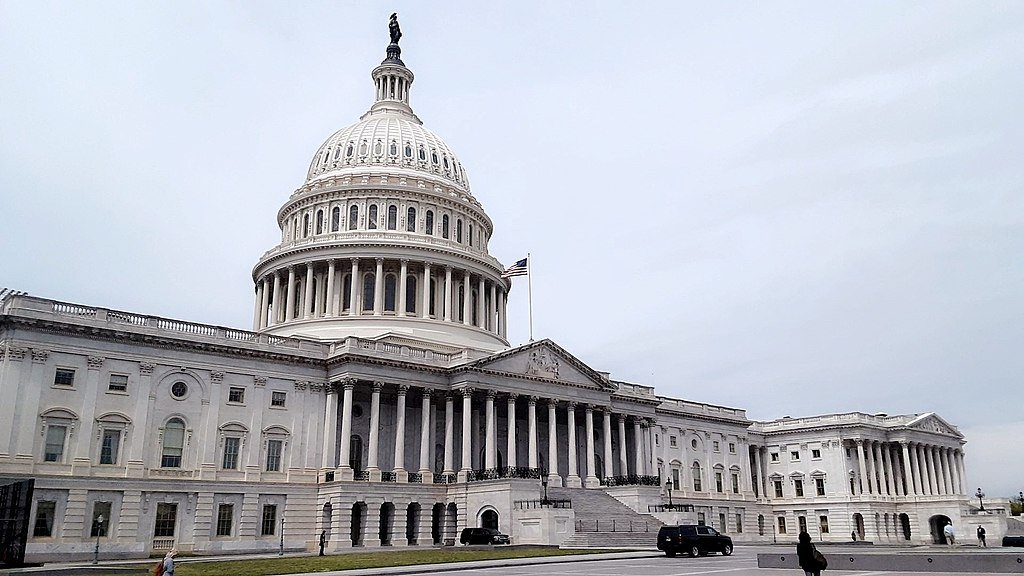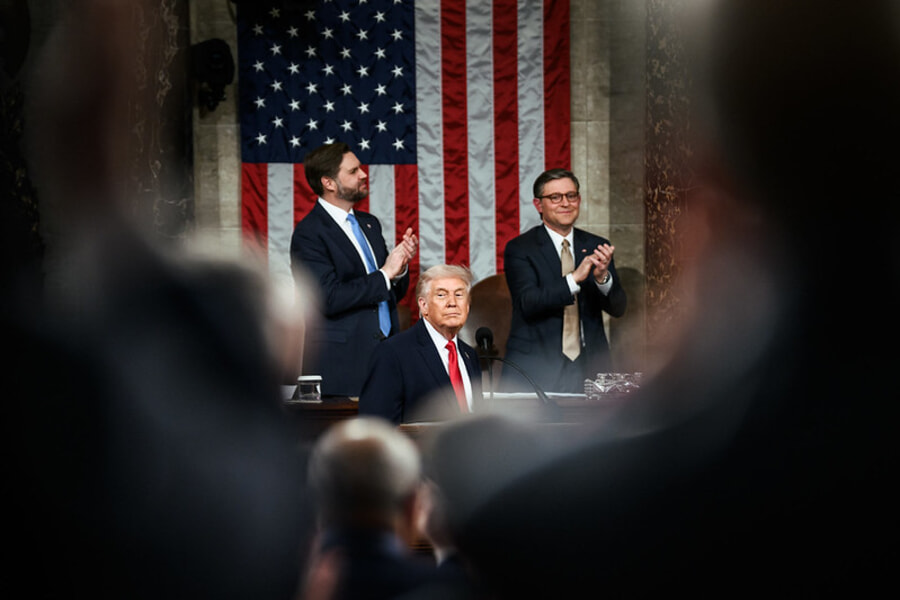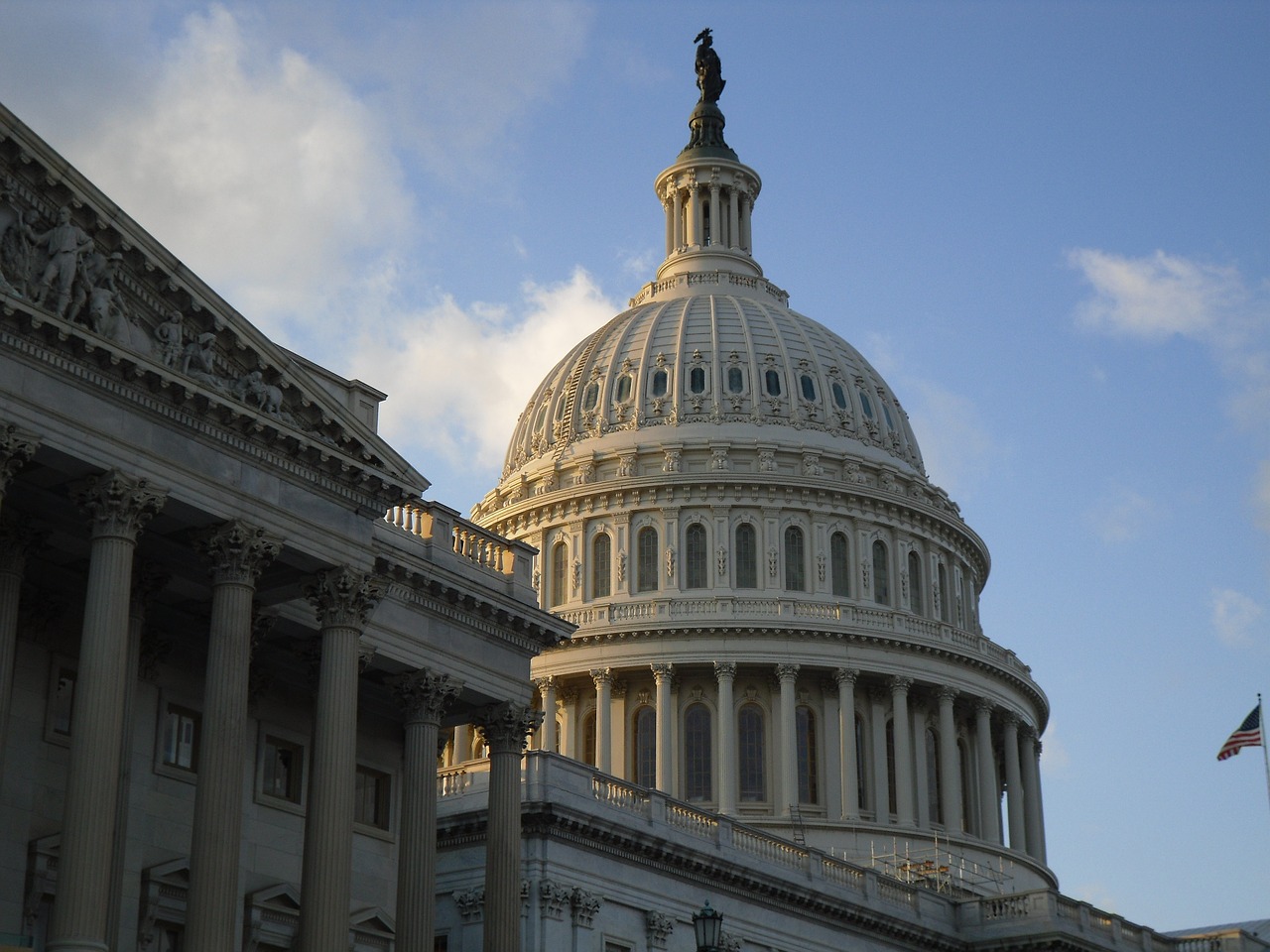Pocket Rescissions: Legal Controversy and Political Meaning
If the power of the purse is at all dear to Congress, legislators will need to fight back against this maneuver to cut spending.

The Republican-controlled Congress recently passed a $9 billion rescission law, canceling a significant chunk of foreign aid spending and about $1 billion for public broadcasting. Beyond disliking these policy choices, Democrats condemned rescissions as a policymaking device. Senate Minority Leader Chuck Schumer (D-N.Y.), for instance, circulated a letter complaining that the rescissions push was “an affront to the bipartisan appropriations process.” Why should Democrats negotiate and then support a detailed spending package if Republicans will turn around and cancel those parts they dislike?
Whatever the merits of these claims, everyone agrees that the Impoundment Control Act (ICA) of 1974 gives presidents the chance to request rescissions and Congress the chance to pass them with expedited (filibuster-proof) procedures within 45 days of continuous session after that request.
Such agreement is absent in the case of so-called pocket rescissions that Russell Vought, director of the Office of Management and Budget (OMB), favors as an option for cutting spending as the end of the fiscal year approaches. Whereas a pocket veto depends on Congress no longer being in session when a president declines to sign a law, a pocket rescission depends on funding authority having expired once the 45-day window for congressional action has ended. Supporters of the move, now including some House Republicans, believe it is an acceptable executive branch tool, rooted directly in the text of the ICA. Critics believe it is an unconstitutional, illegal abuse of power that would severely damage Congress’s power of the purse.
Dating back to Vought’s service as OMB director in the first Trump administration, the two sides have laid out their dueling cases. Vought and OMB General Counsel Mark Paoletta have outlined a plausible statutory case for pocket rescissions. The Government Accountability Office (GAO) has rebutted their case, making clear they believe pocket rescissions amount to illegal impoundments. Briefly rehearsing each side’s options shows they both have merit; pocket rescissions are best understood as an unfortunate loophole in the ICA, which Congress probably should have closed by now but has not. If the administration chooses to make aggressive use of pocket rescissions in the coming months (as many fiscal year 2025 funding obligations approach expiration), it will disrupt the relationship between the two branches far more than any normal rescissions package. If the power of the purse is at all dear to Congress, legislators will need to fight back against this maneuver.
Detailing the Mechanics of a Pocket Rescission
Before detailing OMB’s and GAO’s respective positions on pocket rescissions, it is worth explaining how they would work.
Cancellation of funds is a routine part of government funding, because planned spending and realized spending do not always match up. There are innumerable reasons an agency might spend less than the full amount Congress appropriated to it in a given year. If an agency does not spend a certain portion of money before its expiration date set by Congress, that money returns to the Treasury—or Congress quietly rescinds it in a later appropriations law. There need not be anything legally contentious about this—it might be a matter of pennies on the dollar, or it might be that particular circumstances intervened to prevent full spending.
But this sort of routine under-spending is quite different from executive branch actors simply deciding to zero out funding for some program because they believe it is bad policy. That kind of imposition of executive judgment is an impoundment—and, as Zachary Price explained in his Lawfare primer on the ICA, it is precisely the type of action that the ICA was passed to stop, after President Nixon ramped up its use.
The ICA did not merely tie presidents’ hands, though. It also created a statutory process for rescissions. A president can make a request (for any reason, including believing that spending is unwise), which, in turn, triggers a legally authorized delay in spending the money, to last through 45 days of continuous session. During that period, Congress has the chance to approve the rescission, either in full or (after amendment) in part. If they approve, the funds are rescinded, and if they disapprove, the rescission fails immediately and the money must be spent. If they do not take action, the rescission fails at the end of the 45-day window and the money must be spent.
What is different about a pocket rescission is that the end of this 45-day window comes after the expiration date of the funds in question (which often coincides with the end of the fiscal year on Sept. 30). That seems to flip the default outcome: Rather than congressional passivity leading to a limitation of presidential discretion, legislators’ inaction leaves the president’s withholding of funds in place as they run into their (statutorily specified) expiration date. In other words, the president gets his way unless Congress manages to quickly take up and explicitly reject his request.
OMB’s Statutory Defense of Pocket Rescissions
Under Paoletta and Vought, OMB asserts that there is nothing controversial about pocket rescissions—the statutory procedures are right there in black letter law; they have been used this way before; and concerns about the procedure have not led to changes in the statute.
In a November 2019 letter to GAO, Paoletta parsed the ICA in detail, putting great stress on the statute’s silence regarding timing in Section 1012, which governs rescissions. This is “in contrast to Section 1013 of the ICA, which governs Presidential deferrals of funds,” and which clearly bars deferrals going beyond the end of the relevant fiscal year. Presidents Ford and Carter made what amounted to pocket rescission requests, he shows, and these led funding to lapse without congressional action. No sort of constitutional crisis ensued.
In a longer January 2021 memo to the House Budget Committee, Vought and Paoletta insist that to the extent that anyone did object to the possibility of pocket rescissions, they did so in the context of suggesting that the ICA ought to be amended. A 1975 GAO letter, for example, urges Congress to change “the Act to prevent funds from lapsing where the 45-day period has not expired.” But Congress never took such action. A 2019 bill introduced by Rep. John Yarmuth (D-Ky.), then chairman of the House Budget Committee, would also have addressed this perceived deficiency. But that Congressional Power of the Purse Act was never acted upon.
Paoletta and Vought have a great deal more to say in their exchanges with GAO, owing to the fact that they want to carve out room for much more than pocket rescissions. Their broader position is that, inasmuch as the ICA constrains the president, it unconstitutionally infringes upon core presidential powers and has no legal effect. But on pocket rescissions specifically, the core of their case is straight statutory textualism; the rescission power is what it is, and it allows this use case. How can using it be illegal, then?
GAO’s Appeal to the Spirit of the ICA and the Constitution
By contrast, GAO has concluded that, given a complete understanding of the ICA, pocket rescissions are impermissible. The office’s conclusion, laid out most fully in a December 2018 letter prepared to counter the position being advanced then by OMB, is that there is “no basis to interpret the ICA as a mechanism by which the President may unilaterally abridge the enacted period of availability of a fixed-period appropriation.”
GAO first parses the relevant statutory text differently than OMB. When Section 1012 says, “Any amount of budget authority proposed to be rescinded … shall be made available for obligation unless, within the prescribed 45-day period, the Congress has completed action on a rescission bill,” GAO emphasizes the “shall.” The basic requirement that funds be made available, it says, cannot be removed because of the timing of a rescission request. The 45-day window is relevant only in those cases when it does not coincide with the funds’ expiration date; where there is overlap, the requirement to make funds available takes priority. GAO also offers extensive legislative history to support the proposition that Congress, in enacting the ICA, meant to make it impossible for presidents to cancel spending without affirmative congressional approval. It also points to provisions of the ICA, such as the “fourth disclaimer,” that caution that nothing in the act is supposed to supersede otherwise valid spending laws.
GAO’s objection also goes beyond specific textual provisions to include a warning that pocket rescissions could effectively hollow out the ICA and Congress’s power to control spending. Characterizing the ICA as “an agreement between the legislative and executive branches,” it charges that the pocket rescission maneuver “would frustrate the design of the ICA” and “be an aversion both to the constitutional process for enacting federal law and to Congress’s constitutional power of the purse.” The requirements of bicameralism and presentment, which are stressed in the Supreme Court’s INS v. Chadha (1983) and Clinton v. City of New York (1998) opinions, would be circumvented rather than respected by pocket rescissions. Congress’s institutional role as primary fiscal decision-maker would be disrupted, tilting the constitutional balance of powers decisively toward the executive branch.
In my estimation, the whole idea of a pocket rescission depends on a kind of legal sleight of hand. The rescission request itself seems hard to object to on any legal grounds, and so it is hard to know how it should be contested. But what enables that request to butt up against the funding expiration date is a legally dubious series of spending deferrals (delays) that the ICA also prohibits. As a matter of legal enforcement, stopping impermissible deferrals is very difficult. Courts may enter the picture, but they will often be rather late to the show. As has happened repeatedly over the past half-year, a single district court ruling against some spending-related executive branch decision may not be enough to stop it from taking effect as appeals proceed, and the Supreme Court is slow to issue merits rulings.
The Executive-Congress Relationship in an Age of Mutual Distrust
The situation then, is a somewhat familiar one: A statute with a clear purpose was inartfully drafted, such that one of its provisions can be utilized to defeat its purpose. This Chekhov’s gun has stayed quiet for many acts, but now someone has come along who is in a position to take it up, who is unsympathetic to the law’s underlying purpose, and who is unconcerned about the informal sanctions he might incur by disrupting long-settled practices.
Or, at least, he wants to see how serious those sanctions really are. As Vought has shopped the idea of pocket rescissions around, he is likely trying to gauge just how angry they would make members of Congress. He has made no secret of his desire to disrupt familiar ways of negotiating spending laws, telling an audience of reporters recently, “The appropriations process has to be less bipartisan.” Do those GOP appropriators most committed to bipartisanship have the stomach for a fight over Vought’s efforts that he characterizes as rooting out waste, fraud, and abuse? Congress rising up to defend its institutional prerogatives has not been a regular habit in recent years, to put the point gently.
In this case, it must be said, it would not be very difficult for legislators to fight back, because OMB’s case for pocket rescissions depends entirely on statutory language that Congress could amend without much fanfare. If appropriators do manage to pass bipartisan spending laws for fiscal year 2026—and, given the continued applicability of the Senate filibuster to these laws, it’s not clear what other options there really are!—they could simply amend Section 1012 to clarify that the period in which Congress can approve rescissions is either 45 days of continuous session or a period ending at the funds’ expiration date, whichever ends first. (For administrability’s sake, they might be wise to close Congress’s window for action even earlier, perhaps 15 calendar days before the funds’ expiration.) Such an amendment would probably come too late to prevent a round of pocket rescissions initiated in the coming weeks—but, then, Congress could also simply reinstate that spending.
There is an irony shadowing this whole debate, which is that Paoletta and Vought have each argued that the ICA is unconstitutional, at least in its attempts to limit the president’s options by barring impoundments. In the case of pocket rescissions, though, they are leaning heavily on the words of that statute. They have reason to do so, since their textual argument has some plausibility and they would probably lose an open constitutional fight over inherent impoundment authority.
Legislators should make it very clear to OMB that this behavior would be regarded as unwarranted aggression. There are much better ways to seek savings. Congress just showed itself willing and able to pass a rescission law pursued under normal conditions. Spending negotiations are currently open, offering opportunities to set desirable spending levels on the front end rather than needing to seek rescissions later in the fiscal year. Pocket rescissions, by contrast, are at best a kind of technical gotcha, in which the executive branch shows that it can put one over on legislators. For all of Vought’s complaints about Congress inserting itself into the details of administration through its spending laws, deploying pocket rescissions would put lawmakers on notice that if they do not place excruciatingly detailed requirements about the timing of spending obligations, they should expect OMB to take hold of the power of the purse. There is still time to choose a different path.
The author thanks Meera Sehgal for research assistance.





